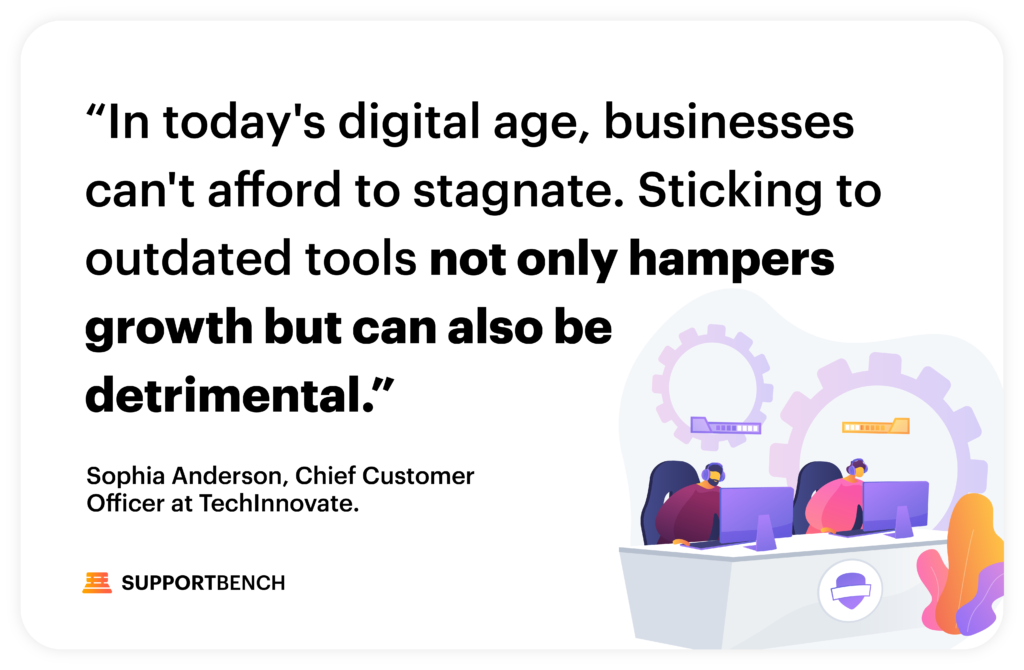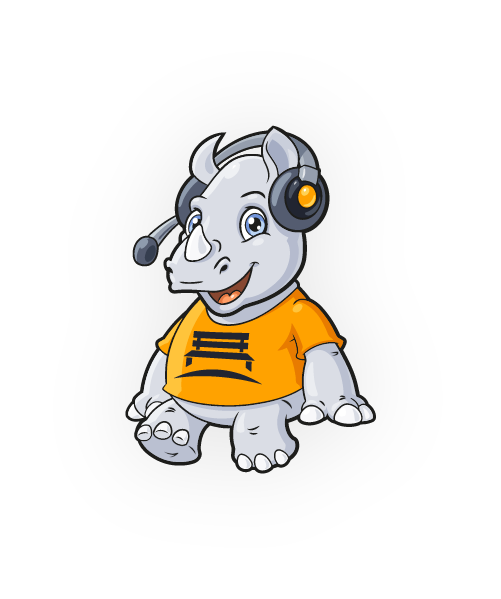Zendesk has been around for years and many small and medium businesses (SMBs) adopted it as their go-to platform for customer service. However, as businesses evolve and expectations rise, the need for more sophisticated and tailor-fit solutions grows. Recent surveys reveal a growing sentiment among SMBs looking beyond Zendesk to newer platforms that offer more advanced and customizable features.
“Every business has a unique DNA. It’s crucial for customer support software to adapt to the business, not the other way around.” – Matthew Patterson, Head of Customer Service at Help Scout.

1. Embracing AI for Better Customer Experience
With AI becoming more integrated into everyday applications, there’s a growing trend of businesses seeking support platforms that harness AI’s power. It’s not about replacing the human touch but enhancing it. And, modern businesses are looking for and demanding sentiment analysis, intent detection, and emotion scoring in real-time to better understand their customers. This data is invaluable in proactively addressing issues and training agents to improve their interactions. If your Support platform lacks AI capabilities, consider third-party integrations or switching to a solution that embeds AI inherently, much like Supportbench. This will ensure you remain competitive and continue to offer the best possible customer experience.
2. The Need for Dynamic SLAs
In an age where customization is king, businesses no longer want one-size-fits-all solutions. Dynamic SLAs are becoming more crucial for companies that value offering tailored support experiences based on the context of the case. Customers’ problems aren’t all the same. And certainly, the problems of yesterday are different than the problems of today. A standard SLA can’t capture the nuances of a renewal case versus a first-time complaint. Dynamic SLAs allow businesses to prioritize certain cases, ensuring that crucial issues are addressed promptly. So, consider integrating a system where SLAs can be adjusted based on case details. By doing so, support teams can ensure a more personalized customer experience, leading to increased satisfaction.
3. Advanced Reporting for Data-Driven Decisions
Traditional ticket counting is becoming obsolete. I said, what I said 😊 Today’s leaders recognize the value of comprehensive reporting to draw meaningful insights and patterns. KPI scorecards, sentiment analytics, and 360-degree customer overviews, as seen in platforms like Supportbench, enable businesses to stay ahead of customer needs and industry trends. So, try and seek platforms that provide in-depth analytics. Look beyond mere ticket numbers; delve into metrics that truly offer insights into customer satisfaction and agent performance.
4. Autonomy Over IT Dependency
Businesses are pushing for more control over their customer support platforms. They desire tools that don’t require constant IT intervention. And, by having a system that’s intuitive and easily customizable, like Supportbench, businesses save both time and resources. These systems allow them to respond swiftly to ever-changing business needs. If you find your team constantly relying on IT for support software adjustments, it may be time to transition to a more autonomous platform.
5. Integration and Synchronization
With the myriad of tools businesses utilize, there’s a strong demand for customer support platforms that seamlessly integrate with existing systems, like Salesforce. Syncing data across platforms eliminates silos, streamlines workflows, and ensures consistent information across teams. It empowers agents with a holistic view of customer data, leading to more informed interactions. You must regularly review your software integrations and ensure your customer support software communicates effectively with your other key tools.
6. Embracing the Power of Chatbots
I can’t stress this enough, chatbots, when done right, can drastically enhance the customer experience by offering quick solutions and filtering queries. A well-structured chatbot, like those powered by ChatGPT, can address a significant portion of routine queries, allowing human agents to focus on more complex issues. If your platform doesn’t already incorporate a chatbot, please consider integrating a great one. They’re invaluable for SMBs looking to scale without drastically increasing their human resources.
In our ever-evolving digital landscape, it’s essential for businesses to align themselves with tools that not only address current needs but also anticipate future challenges. While Zendesk has its merits, the growing trends and demands highlight the importance of advanced features and customization. But platforms like Supportbench are emerging as front-runners in this realm, offering businesses a suite of tools that truly put the customer at the center of their operations. Relying on outdated platforms can have dire consequences for SMBs.
“In today’s digital age, businesses can’t afford to stagnate. Sticking to outdated tools not only hampers growth but can also be detrimental.” – Sophia Anderson, Chief Customer Officer at TechInnovate.
Consequences of Not Transitioning to a Modern Support Platform:
1. Losing Competitive Edge
In a world where businesses are constantly vying for customers’ attention, those not equipped with cutting-edge tools often fall behind. Sticking with older platforms can result in slower response times and less personalized support.
2. Escalating Operational Costs
Older platforms may require frequent manual interventions and workarounds, increasing operational costs. Additionally, as these platforms may not integrate seamlessly with other modern tools, businesses might have to invest more in bridging the gaps.
3. Diminishing Customer Trust and Loyalty
In today’s world, customers expect prompt and tailored responses. Companies using outdated tools risk providing sub-par support, which can erode customer trust and loyalty over time.
Benefits of Transitioning to Supportbench:
1. AI-Powered Insights for Enhanced Support
Harnessing AI’s capabilities, like sentiment analysis and emotion scoring, ensures businesses are not just reacting to problems but proactively addressing them. This guarantees a more personalized and timely customer experience.
2. Seamless Integration with Modern Tools
Supportbench’s ability to synchronize with platforms like Salesforce ensures that businesses have a unified data source, reducing errors and improving agent efficiency.
3. Dynamic SLAs for Tailored Responses
With the ability to adjust SLAs based on specific case details, businesses can ensure that each customer receives the attention and urgency they deserve.
4. Cost-Efficiency
Modern platforms like Supportbench, designed with autonomy in mind, reduce the need for constant IT interventions, leading to significant savings in time and resources.
5. Scalability for Future Growth
Supportbench is built to grow your business. Whether you’re scaling up your team or expanding to new markets, the platform can adapt without compromising performance or efficiency.
While Zendesk has its merits, the evolving landscape of customer support demands tools that can adapt and scale with the times. By understanding the risks of stagnation and the benefits of forward-thinking platforms like Supportbench, SMBs can make informed decisions to ensure their continued growth and success in the market.











